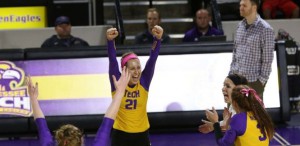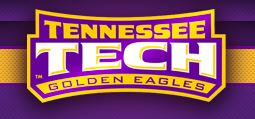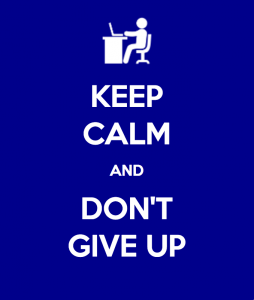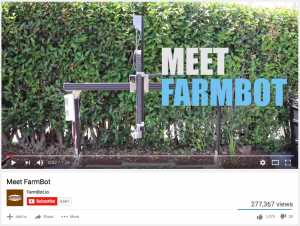Before we begin, I would like to apologize to all those who contributed to this article; I had intended to publish it almost two months ago, but a series of unfortunate circumstances (coupled with my schoolwork) pushed it back until now. Additionally, I would like to clarify the context of the article. Starting at the end of May, 2017, and running through July 10th, 2017, a group of people comprised of myself (Jacob Strickler), Kendall Kirby, Nick Hatfield, Colton Wrisner, Kathryn Burks, David Yantis, Zachary Wallace, Eric Brown, Paula Brown, Artem Drachkov, Dr. Ambareen Siraj, and Dr. Vitaly Ford worked to develop activities for that summer’s GenCyber camp, which would take place from July 10th through July 14th. GenCyber camp is a computer science and CyberSecurity-themed camp sponsored by the National Security Agency and the National Science Foundation, which aims to introduce middle and high school students to the principles of CyberSecurity. Over the course of the camp, we engaged in activities including Raspberry Pi labs, investigative paper CTFs, and even games of dodgeball designed to teach students about data protection. At the end of the camp, we decided that we would publish an article detailing the experiences of five of the camp chaperones (the first five in the above list), each segment of which would be written by the corresponding chaperone. Our experiences are as follows:
- Jacob Strickler
My experience with this summer’s GenCyber camp came in three distinct stages: brainstorming, building, and doing. The brainstorming came in the very beginning – with those laughter-filled meetings where we looked forward to the camp with unbridled imaginations and asked ourselves, “How can we take what resources we have and turn them into something great?” Most of us had very little experience with the technical aspects of CyberSecurity, and we felt so ill-prepared that I think it drove us a little insane. Thankfully, it was the good kind of insanity, because in the first two weeks of camp development, we came up with more ideas than we could possibly remember: escape rooms, puzzles, social engineering experiments, Raspberry Pi labs, and even a website that we would intentionally encourage the students to exploit. Some of these activities seemed to create themselves, while others had to be shaped and molded at every turn to prevent some unseen catastrophe that might come crashing down upon us. It was hard work, but it was fun; it was the type of work that required a hazy vision of the future, where we struggled to ensure that everything would work within the scope of the camp, and that we hadn’t overlooked some crucial detail – and while we all came in with different visions, we managed to come together and create something far bigger than ourselves.
Then, there came the building. We were waist-deep in a torrent of both wonderful and horrible ideas, but if those ideas were to mean anything, they had to be made concrete. This was by far the most difficult part of the camp; sometimes, we would work from ten in the morning to ten at night, drawing, writing, coding, and attacking our websites from every angle, hoping they would break so we could convince ourselves that we fixed them. Although this stage was cumbersome, we learned a lot about ourselves. We learned that we were capable of far more than we had originally imagined, and that if we put our hands and minds to something, we could eventually make it real. I’m not certain that this stage ever truly ended; it seemed like every time we thought we were finished, another happy little speed-bump would make its way into our plans, and we’d go back to the lab once more. Nevertheless, the satisfaction was exquisite. To look at something we’d created, knowing that only a week ago, it was nothing more than a collection of images and impulses within our brains, somehow made it all worthwhile.
Lastly, there came the doing. I was tempted to call this section “teaching,” but I realized it was a great deal more complicated than that. As soon as the first student walked through those double doors, we knew that all the work of the past two months would be forced to consummate. There could be no more edits, revisions, or last-minute brainstorming; we were in the moment now, and either we succeeded, or we didn’t. Personally, as much as I loved the early stages of our “mad scientist” meetings, the camp itself was my favorite part. I never thought I would like teaching; my experience with the public education system was neither good nor bad, but it always carried a very captive atmosphere. I could tell that most of my fellow students would rather be somewhere else, and I think that’s true for most schools. At the GenCyber camp, however, it was the complete opposite. Here was a collection of young men and women – from rising eighth-graders to high-school seniors – all of whom truly wanted to be there. Some of them even cried when the camp was over, wishing that it could have been longer. I could tell that they had followed the same journey as we had, from believing they could never know enough to be good in CyberSecurity, to becoming confident that no obstacle was insurmountable. To be a part of that journey for so many younger students – and to have crafted the tools with which they made that journey – that was the most rewarding part of all.
- Kendall Kirby
I had a blast helping to run the GenCyber camp this summer; I learned so much in developing modules to teach the students. I’ve heard that you never really learn something until you teach it, and for me, this camp proved that. It was a lot of work preparing everything, and it seemed like every time we thought we had it all finished, some other issue would pop up. Honestly, though, that just made it more enjoyable. We were designing a camp for CyberSecurity, so, in part, we were teaching the students how to “break” technology. This meant that, when developing the modules, we had to look at them with extra scrutiny to make sure there weren’t any loopholes or bugs that could be exploited. I love that sort of thing – that’s why I want to be a penetration tester after graduation. The students, teachers, and counselors seemed to love every second of it, too. I never doubted that the camp would be enjoyable, but I was surprised at how enthusiastic everyone was about it. When the students were working on the modules, I would look around and see almost every student engrossed in his or her work. A few of the students that had previous experience with this sort of thing would finish early and help out other students or try to learn beyond the material. That was a great thing to see because it showed that the students had a genuine interest in this field. As the camp was ending, I heard several students say how they wish they could come back for more the next week. Hearing things like that really lets you know that you at least did some things right. I’m really glad I had the chance to participate this year, and I like to think that because of this camp, some students might choose to pursue an education in CyberSecurity (maybe even at Tech)! One can always hope…
- Nick Hatfield
Hey, y’all! My name is Nick Hatfield, and I’m an upcoming sophomore focusing in CyberSecurity. I got to work with this amazing group of people in CEROC this summer and my experience was a blast. Most of what I know right now is self-taught, and working with CEROC has tremendously boosted my confidence. I did not think that I would be able to contribute much to the group because of the little knowledge that I had beforehand, but that was not the case at all. I was given a handful of tasks to complete for the GenCyber camp this summer; my jobs consisted of setting up several modules. The first module I worked on was a Raspberry Pi lab that taught networking and the principle of Data Hiding. This lab emulated a traffic light, which the students would try to change by using their own pi. Throughout the activity, the students would use Wireshark to look at the connection between their personal pi and a ‘server’ pi. They found the data that the server used to change the lights and tried to manipulate it. I was also given the task for presenting on the importance of being a good “Cyber Samaritan,” which included smart network hygiene and general safety while on the web. Honestly, I feel like I learned just as much as the students who were attending the camp. My co-workers taught me when I was struggling with a concept and vice-versa. I’m incredibly lucky to have had the opportunity to work with a group of such stunning individuals that all love doing what they do.
- Colton Wrisner
My experience with the GenCyber camp was both a joy and a learning opportunity. I feel extremely honored to have worked with such great people and to have been allowed to teach the coming generations about the importance of CyberSecurity. Each day of the camp, I remember waking up and looking at the schedule, excited for all the activities we had worked so hard to create, and for the chance we gave the students to learn about CyberSecurity. One thing I heard the students ask near the end of the camp really resonated with me: “Can we make this a two-week camp?” To me, this showed that all of our work was truly impacting the students’ lives so much that they wanted more opportunities to learn – and to have fun while doing it. I’m sure the other chaperones would agree; the long hours that we had worked during this week-long event were a highlight of our summers. This camp enabled the students to do far more than just sit around and play on a computer. It gave everyone the opportunity to make connections with like-minded peers, learn valuable skills for the near future, and have lots of fun. If I had to give this camp a rating, I’d say ten out of ten!
- Katie Burks
The best word I can use to describe GenCyber 2017 at Tennessee Tech is “disruptive.” Now, I know that most of us tend to think of disruption as a negative experience – at best, those sorts of things tend to be an inconvenience or a bother, and at worst our lives are dismantled and derailed and we’re left to pick up the pieces in the aftermath. And, in a way, I suppose that connotation might also apply to the summer we would have experienced had any number of things had gone differently. Both the camp itself as well as the two months or so of preparation before the camp ever started threw me far out of my comfort zone – the idea of spending my summer trying to figure out good ways of teaching kids computer science and CyberSecurity was disruptive to the picture I had of myself, especially when I still had so much to learn about the things we were planning to teach. I was entirely unprepared for the amount of effort required to pull off an educational summer camp – never mind that I hadn’t actually been to a summer camp before.
As much as I learned in the two month preparation phase, my brain buzzing with Linux and Raspberry Pi labs, and as much as I pushed my creative capacities to the limit with coming up with puzzles and games from scratch, it was nothing compared to the first day of camp. The problems we expected never came up, while obstacles we hadn’t even considered seemed to crop up around every corner. Out of all this, the most difficult things to get over were the six words that echoed throughout the day by nearly everyone involved – students, teachers, counselors, and chaperones alike. “I’m not smart enough for this.”
Talk about a thought process that needed to be disrupted. I’m convinced that there are very few things more destructive to a human being than having a lack of confidence in his or her own capabilities, and we were all struggling with that very problem. Still, we pushed through the rest of the day, tackling the labs and activities and discussions we’d planned out weeks ago and looking forward with bated breath to the clock striking 5:00 p.m.
Then, somewhere between ploughing through an introduction to Linux and throwing tennis balls at each other from across a football field, those six words suddenly disappeared. No one was worrying about not being able to handle the information we were throwing around. No one was stuck on the fact that we’d never done anything like this before. It was as if we’d stopped being intimidated by the things we were trying to do and accepted that we were just going to spend the week learning – disrupting whatever opinions of ourselves we’d had on Saturday and giving ourselves the opportunity to grow. In the end, I think that’s what disruption really is – an opportunity to grow. I’m hard-pressed to think of another time when I’ve seen such an explosion of confidence over such a short time, for everyone involved with this experience.







